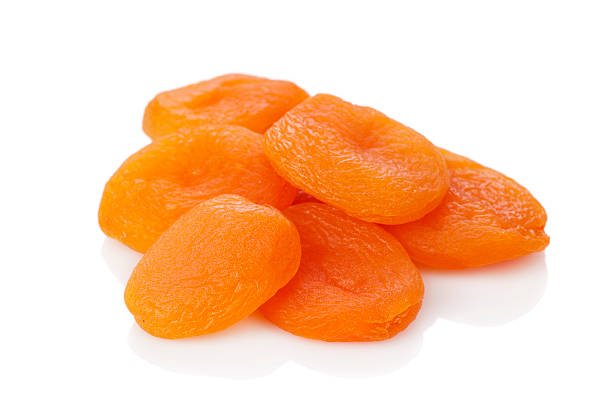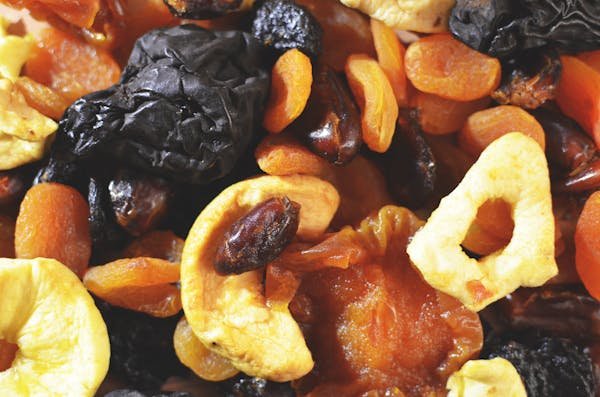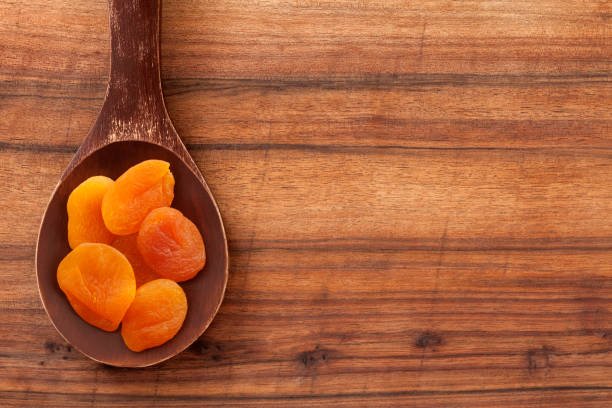Dried apricots are often overlooked in the world of healthy snacks, but these chewy, sweet, and nutrient-packed little bites deserve a place in your pantry. Whether you’re trying to satisfy your sweet tooth or need a quick, nutritious snack, dried apricots provide a versatile and healthy option that is perfect for everyone. Let’s explore why dried apricots should be your go-to snack and how they can benefit your overall health.
Introduction to Dried Apricots
What Are Dried Apricots?
Dried apricots are fresh apricots that have been dehydrated to remove most of their water content, concentrating their natural sugars and nutrients. This drying process not only extends their shelf life but also intensifies their flavor, making them a delicious and convenient snack.
Brief History of Dried Apricots
The tradition of drying apricots dates back centuries, with origins in the Middle East and Mediterranean regions, where they were a staple food for travelers. The process of drying fruit has allowed people to preserve the goodness of apricots for extended periods, especially when fresh fruits were scarce. Today, dried apricots are enjoyed worldwide and remain a popular snack.
Nutritional Benefits of Dried Apricots
Rich in Essential Vitamins
Dried apricots are a treasure trove of essential vitamins that are vital for your body’s proper functioning.
Vitamin A
Dried apricots are particularly high in vitamin A, which plays a crucial role in maintaining healthy vision, immune function, and skin health. Just a handful of dried apricots can supply you with a significant portion of your daily vitamin A needs.
Vitamin E
These little fruits are also rich in vitamin E, an antioxidant that helps protect your cells from oxidative stress and supports skin health, keeping it supple and youthful.
High in Dietary Fiber
Dried apricots are an excellent source of dietary fiber, both soluble and insoluble. Fiber is important for maintaining good digestive health, preventing constipation, and promoting regular bowel movements. It also helps you feel fuller for longer, making dried apricots a smart snack choice if you’re trying to manage your weight.
Packed with Antioxidants
The vibrant orange color of dried apricots is due to the presence of beta-carotene, a powerful antioxidant. Antioxidants help combat free radicals in the body, reducing oxidative stress and potentially lowering your risk of chronic diseases like heart disease and cancer.
Low in Calories and Fat
Despite their sweetness, dried apricots are surprisingly low in calories and contain virtually no fat. This makes them a great snack for those watching their calorie intake but still wanting something that feels indulgent.

Health Benefits of Dried Apricots
Improves Eye Health
Thanks to their high vitamin A content, dried apricots can help improve and maintain eye health. Vitamin A is essential for preventing night blindness and age-related macular degeneration, two conditions that can affect vision as we age.
Supports Digestive Health
The fiber in dried apricots plays a key role in promoting healthy digestion. It helps regulate bowel movements and can alleviate issues like constipation and bloating. If you ever feel like your digestive system needs a little help, a handful of dried apricots can be a gentle and natural solution.
Boosts Skin Health
Your skin will thank you for incorporating dried apricots into your diet. The combination of antioxidants, vitamins A and E, helps combat skin damage caused by free radicals, giving your skin a healthy, youthful glow.
Helps with Blood Pressure Control
Dried apricots are rich in potassium, a mineral that helps regulate blood pressure. High potassium levels can help balance out the negative effects of sodium in your diet, making them a heart-healthy snack option.
Enhances Bone Health
Calcium is another key nutrient found in dried apricots, and it is essential for maintaining strong bones and teeth. Pair that with their magnesium content, and you’ve got a snack that supports healthy bone density.
Aids in Weight Management
The fiber in dried apricots helps curb your appetite by promoting feelings of fullness, making it easier to manage portion control and prevent overeating. If you’re looking for a snack that satisfies without packing on the pounds, dried apricots are an excellent choice.
How to Incorporate Dried Apricots Into Your Diet
As a Quick, On-The-Go Snack
Dried apricots are portable and require no preparation, making them a perfect snack when you’re in a rush. Whether you’re headed to the gym, packing a lunch for work, or just need a quick pick-me-up, dried apricots are a healthy and convenient option.
In Smoothies and Shakes
For a natural sweetness boost, add a few dried apricots to your smoothies or protein shakes. Their rich flavor pairs well with a variety of fruits and enhances the overall nutrient content of your drink.
Added to Breakfast Dishes
Oatmeal
Chop up some dried apricots and sprinkle them over your morning oatmeal for a flavorful twist. The sweetness of the apricots complements the heartiness of oats, making your breakfast more enjoyable and nutritious.
Yogurt Parfaits
Layer dried apricots with Greek yogurt and granola for a simple yet tasty parfait. This is an easy way to start your day with a healthy balance of carbs, protein, and fiber.
As an Ingredient in Baked Goods
Dried apricots add natural sweetness and a chewy texture to baked goods like muffins, breads, and cookies. They can be used as a substitute for sugar-laden ingredients like chocolate chips or raisins, making your baked treats a bit healthier.
Dried Apricots in Savory Dishes
You can even incorporate dried apricots into savory meals! Try adding them to grain-based salads, couscous, or tagines for a hint of sweetness that complements spices like cumin and cinnamon.

Are Dried Apricots Good for Everyone?
Suitable for People with Gluten Sensitivity
Dried apricots are naturally gluten-free, making them a safe snack for people with celiac disease or gluten intolerance. They offer a nutritious and delicious alternative to processed gluten-free snacks.
Considerations for People with Diabetes
While dried apricots are a healthy snack, they are also relatively high in natural sugars. If you have diabetes, it’s important to eat them in moderation and be mindful of your portion sizes to avoid spiking your blood sugar levels.
Best Portion Size for Maximum Benefits
A typical serving of dried apricots is about ¼ cup, or roughly 6-8 pieces. This amount gives you a boost of vitamins and minerals without going overboard on sugar or calories.
Buying and Storing Dried Apricots
How to Choose the Best Quality Dried Apricots
When shopping for dried apricots, look for ones that are free of added sugars and preservatives. Organic dried apricots, which often appear darker due to the lack of sulfur dioxide, are a healthier choice and taste just as delicious.
Storing Dried Apricots to Maintain Freshness
To keep your dried apricots fresh, store them in an airtight container in a cool, dark place. If you live in a humid environment, refrigerating them can help extend their shelf life even further.
Dried Apricots vs Fresh Apricots: Which Is Better?
While both dried and fresh apricots have their benefits, dried apricots are more concentrated in nutrients due to the dehydration process. Fresh apricots are lower in calories and sugar, but dried apricots provide a more convenient, long-lasting snack option that is easy to take on the go.
Potential Side Effects of Consuming Dried Apricots
Though dried apricots are packed with health benefits, overconsumption can lead to digestive issues such as bloating or diarrhea due to their high fiber content. Additionally, the sulfur dioxide used to preserve their bright color can cause allergic reactions in some people.

Health and Environmental Impact of Organic Farming
Opting for organic dried apricots supports sustainable farming practices, which are better for the environment. By choosing organic, you’re not only benefiting your health but also contributing to a healthier planet.
Potential Downsides of Dried Apricots and How to Manage Them
Discussing Sugar Content and Portion Control
While dried apricots are a healthy snack, they do contain natural sugars. Eating too many at once can lead to a spike in blood sugar levels, so it’s important to practice portion control. Stick to a small handful to enjoy the benefits without overdoing it.
Tips for Avoiding Overconsumption
To avoid eating too many dried apricots at once, try pre-portioning them into small snack bags. This will help you control your portions and prevent mindless snacking.
Conclusion
Dried apricots are a nutrient-dense, convenient, and delicious snack that provides a wide range of health benefits. From boosting your energy to supporting heart health, they’re a smart choice for anyone looking to make healthier snack decisions. So, next time you’re craving something sweet, skip the processed snacks and reach for some dried apricots instead!
FAQs
How many dried apricots should I eat daily?
A small handful (about 5-6 pieces) is enough to enjoy the health benefits without consuming too much sugar.
Are dried apricots safe for people with diabetes?
Yes, in moderation. Since dried apricots contain natural sugars, it’s best for people with diabetes to eat them in small portions.
Can dried apricots replace fresh fruit in my diet?
While dried apricots are nutritious, they shouldn’t completely replace fresh fruit. Fresh fruit contains more water and fewer concentrated sugars.
What’s the difference between sulfur-treated and unsulfurized apricots?
Sulfur-treated apricots are orange in color, while unsulfurized ones are darker. Both are nutritious, but sulfur-treated apricots may have a slightly longer shelf life.
How should I store dried apricots to keep them fresh?
Store dried apricots in an airtight container in a cool, dry place. You can also refrigerate them to extend their shelf life.




Pingback: Surprising Health Benefits of Dried Apricots
Pingback: How Dried Apricots Can Boost Your Immune System | Nutritional Benefits & Tips
Pingback: Dried Apricots: The Superfood That Promotes Healthy Vision
Pingback: Apricot Dry Fruit: Your Sweet and Delicious Secret to Effective Weight Management
Pingback: Benefits of Apricot Dry Fruit for Workouts